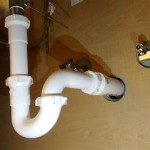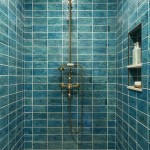Mold in Bathroom Sink Faucet: Essential Aspects to Consider
Maintaining a clean and mold-free bathroom is crucial for hygiene and aesthetic reasons. Mold growth in bathroom sink faucets can be particularly unsightly and potentially harmful to health. Understanding the essential aspects of mold in bathroom sink faucets is vital for effective prevention and remediation.
1. Causes of Mold Growth
Mold thrives in moist and warm environments, making bathroom sink faucets ideal breeding grounds. Persistent moisture from water leaks, soap residue, and inadequate ventilation can contribute to mold growth. Corroded or damaged faucets with loose handles or dripping spouts allow water to accumulate, creating ideal conditions for mold.
2. Types of Mold
Various mold species can colonize bathroom sink faucets, each with its unique characteristics and potential health effects. Common types include Aspergillus, Cladosporium, and Penicillium. Allergic reactions, respiratory issues, and other health complications can arise from exposure to mold spores.
3. Health Risks
Exposure to mold in bathroom sink faucets can pose health risks, especially for individuals with compromised immune systems. Mold spores can cause respiratory problems, such as sneezing, coughing, and wheezing. Prolonged exposure may lead to more severe conditions, including asthma and allergic reactions.
4. Prevention Measures
Regular cleaning and maintenance can effectively prevent mold growth in bathroom sink faucets. Wipe down faucets with a disinfecting solution after each use to remove moisture and debris. Ensure proper ventilation by opening bathroom windows or using exhaust fans during and after showers or baths. Promptly fix any leaks or drips from the faucet to prevent moisture buildup.
5. Remediation Techniques
If mold has already colonized your bathroom sink faucet, immediate action is necessary. Remove the faucet aerator and soak it in a bleach solution. Clean the faucet body with a mold-killing disinfectant and scrub away visible mold. In cases of severe mold infestation, professional remediation may be required.
6. Ongoing Maintenance
Once mold has been removed, it is essential to implement ongoing maintenance to prevent recurrence. Continue regular cleaning and ventilation practices as described in the prevention measures. Replace old or damaged faucets to eliminate potential moisture traps. By adhering to these maintenance tips, you can ensure a mold-free and healthy bathroom sink faucet.

Moldy Smelling Water From Bathroom Faucet Hometalk

How To Prevent Find Get Rid Of Mold In Your Bathroom

Mold Around Bathroom Sink Faucets Picture Of Embassy Suites By Hilton Birmingham Tripadvisor

What To Do When The Bathroom Sink Smells Like Mildew Mold Smell

Black Slime On Faucets What It Is And How To Get Rid Of

Dripping Faucet Why You Need To Have It Repaired Steve S Plumbing Blog

Blue Green Stains On Bathroom Fixtures A Ga Plumber Explains Mr Atlanta

How To Clean Mould From Bathroom Taps Using 30p Fruit Easy Way Banish Dark Stains Express Co

Dirt Or Mold Around Bathroom Sink Faucet Picture Of Sheraton New York Times Square Hotel City Tripadvisor

Easy Way To Clean Moldy Caulk And Keep It That Checking In With Chelsea
Related Posts







